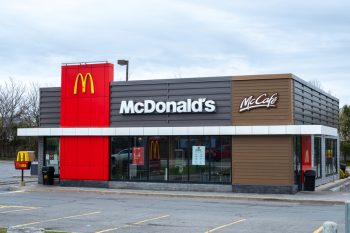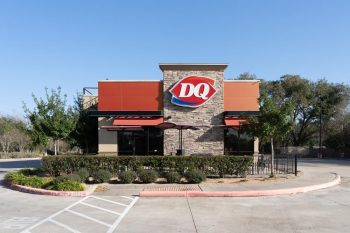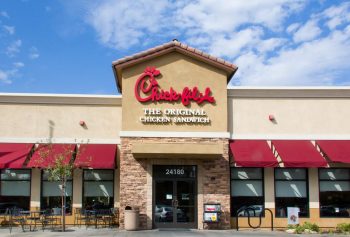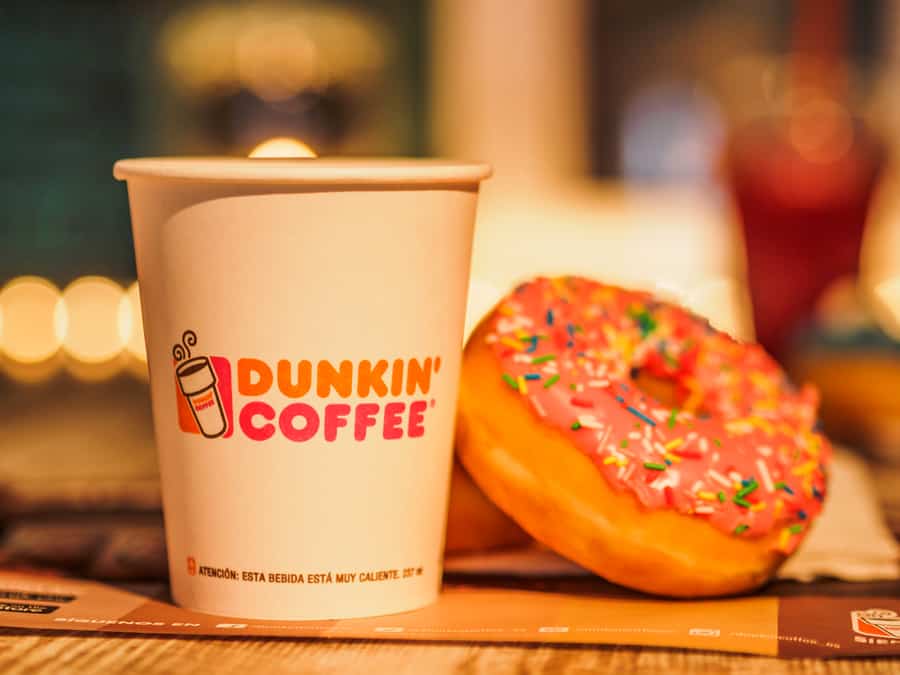
Be it, pregnant ladies or caffeine-sensitive people, decaf coffee by Dunkin’ Donuts is their perfect way of enjoying coffee without the caffeine impacts. Their decaf coffee has nutty and chocolate undertones along with a smooth texture.
Well, it does sound like regular coffee, right? This is because they have a unique processing method for coffee, and we are sharing all the details.
Decaf coffee is made from Arabica coffee beans, which undergo a specific process that removes the caffeine. As a result, your cup has around 97% caffeine-free coffee. In fact, the eight-ounce cup has only 10mg of caffeine, which is pretty good.
Dunkin’ Donuts is the go-to coffee store for snacks and a quick breakfast. Their decaf coffee is loved by the masses and is prepared with the Swiss Water Process, which helps retain the natural flavors while removing the caffeine content.
However, if you want to know the secret behind their processing, we are spilling the beans (no pun intended).
Ways to Decaffeinate the Coffee
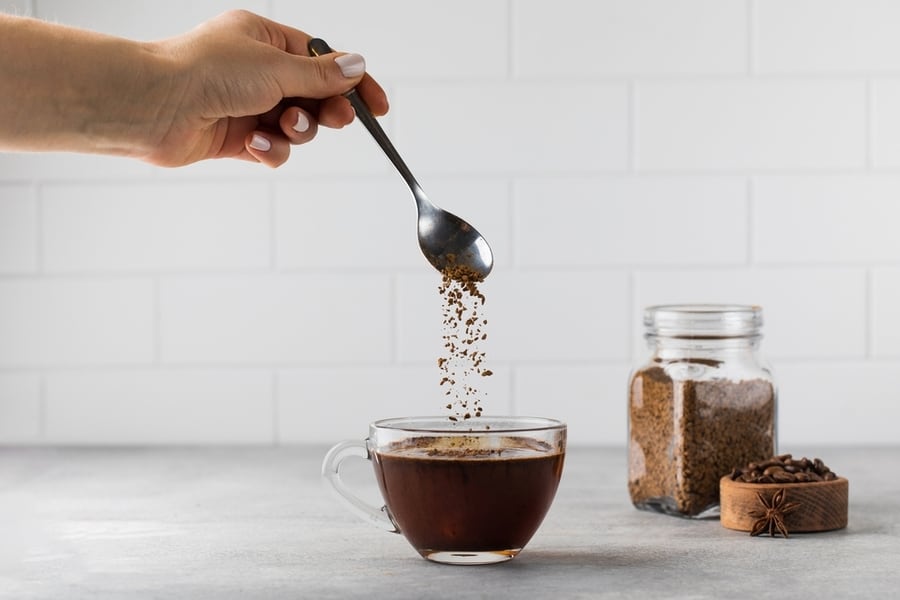
There are several ways to process decaf coffee; let’s explore each in detail.
1. Roselius Method
The Roselius method is considered to be one of the earliest methods and was developed by Ludwig Roselius in the early 20th century.
In this method, the green coffee beans are soaked in water and benzene, a chemical solvent, to dissolve the caffeine. The beans are then washed with hot water to remove the solvent and caffeine. Finally, the decaffeinated beans are then dried and roasted.
It is considered less safe and environmentally friendly than the other decaffeination methods due to benzene (a toxic and potentially hazardous substance).
The Roselius method is not widely used today and has been primarily replaced by other, safer decaffeination methods, such as the Swiss Water Method or the carbon dioxide method.
2. Direct Method
The direct decaffeination method involves applying chemicals such as methylene chloride or ethyl acetate to unroasted coffee beans. The beans are soaked in water for several hours before being treated with chemicals to remove 99% of the caffeine.
Although methylene chloride is more notorious for its carcinogenic properties, ethyl acetate is often referred to as the “natural process” due to its natural origin in fruits.
However, both chemicals are used in larger quantities than in any naturally occurring process.
3. Indirect Method
The indirect method is slightly more advanced, eliminating direct contact between coffee beans and chemicals. The unroasted beans are soaked in water to extract flavors and caffeine, and the resulting water is treated with chemicals to remove caffeine.
After decaffeination, the water is re-injected into the beans to revive the flavor. This method is less prone to criticisms about chemical residue, but it still raises environmental concerns about properly disposing of decaffeinated chemicals.
4. Carbon Dioxide Method
The carbon dioxide method uses highly pressurized carbon dioxide to extract caffeine from unroasted coffee beans. The beans are soaked in carbon dioxide at 200 times their normal atmospheric level. This method is widely used on a large scale for commercial-grade coffee.
This decaffeination process involves soaking the beans in water and removing caffeine through carbon dioxide extraction. After that, it removes and dries decaffeinated beans and recovers dissolved caffeine.
However, the high capital and overhead costs can be a disadvantage unless large-scale economies are achieved.
Processing of Dunkin’s Decaf Coffee
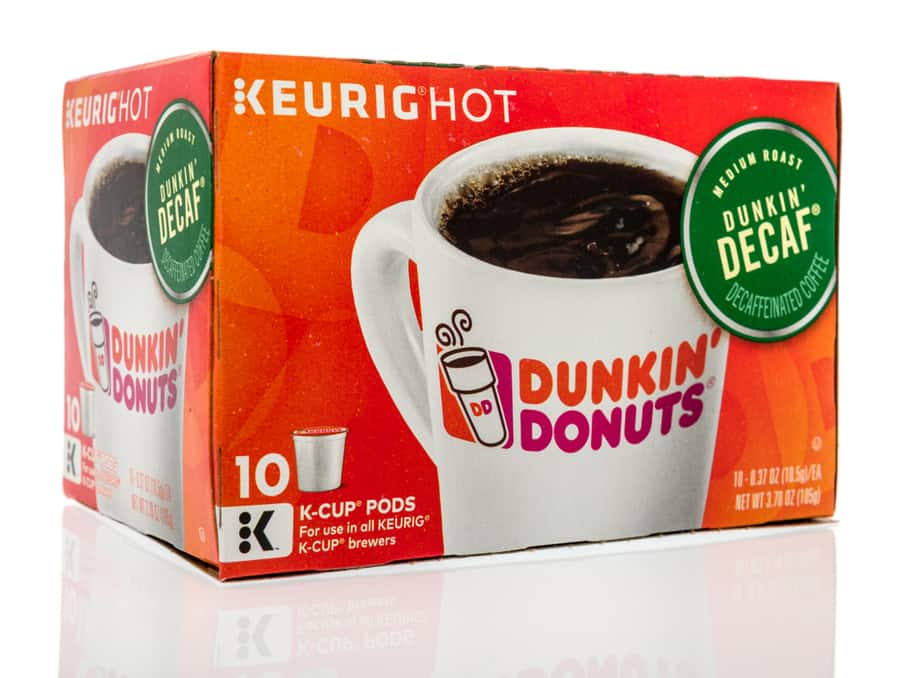
Dunkin’ Donuts is a well-known coffee chain all over the world, and they offer different kinds of coffee, including decaf. Their decaf coffee undergoes a meticulous process to ensure its rich flavor and aroma.
The beans are first roasted from Arabica and then decaffeinated using the Swiss Water Process, which eliminates caffeine using water and osmosis without chemicals.
The beans are soaked in hot water to extract the caffeine, which is then removed through filtering with a carbon filter. After soaking the beans in filtered water, this process preserves the coffee’s natural antioxidants and flavor.
Caffeine Content
The decaf coffee by Dunkin’ Donuts has 97% caffeine-free coffee. The remaining caffeine is naturally occurring and cannot be removed during decaffeination.
The regular-sized decaf at Dunkin’ Donuts has only 25mg-35mg of caffeine, whereas the regular coffee has 250mg.
In addition, it has only two calories. If you want to enjoy the natural flavor, you should opt for the cold brew style, which tastes fantastic on its own, or you can add sugar and milk.
Flavors Available
The decaf coffee is available in regular as well as iced forms. The flavors include mocha, hazelnut, and French vanilla. You can find iced coffee in medium and large cups.
The medium cup has around 25 mg of caffeine, while the large cup has 35 mg.
Summary
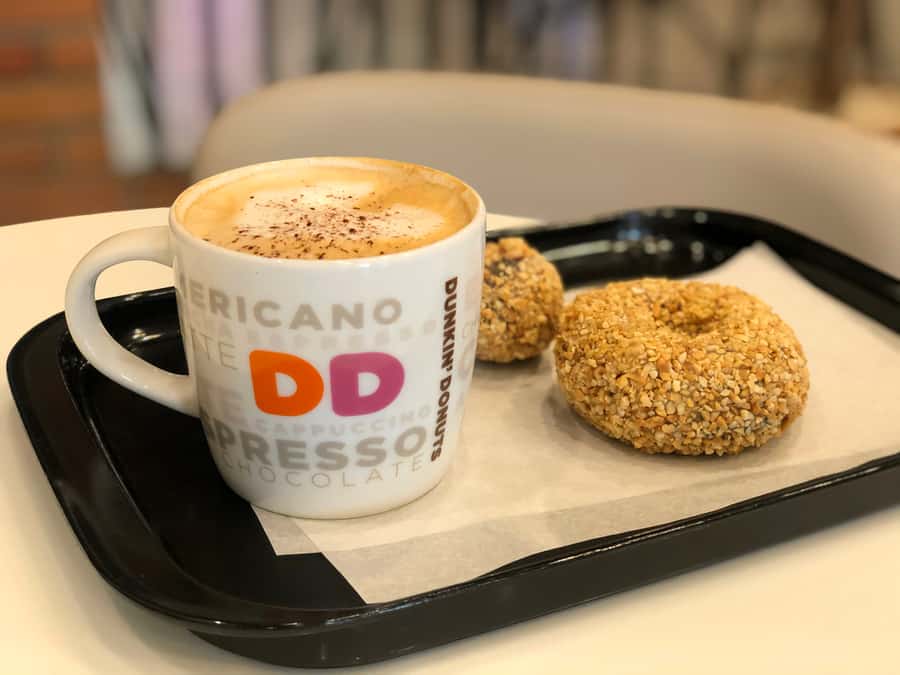
Dunkin’ Donuts’ decaf coffee is a great option for those who want to enjoy a delicious coffee without the jitters. With 97% of the caffeine removed and only 25 to 35 mg remaining, this coffee is perfect for those who want a low-caffeine option.
The Swiss Water Process used to decaffeinate the coffee ensures that the rich flavor and aroma are preserved, and with flavors like mocha, hazelnut, and French vanilla, there’s something for everyone to enjoy. So, whether you prefer it hot or iced, Dunkin’ Donuts has got you covered.
Frequently Asked Questions
Does Dunkin’ Donuts’ Decaf Coffee Have Any Chemicals?
The Swiss Water Process doesn’t use chemicals to extract caffeine. So Dunkin’ Donuts’ decaf coffee has no chemicals but only natural antioxidants.
Is Decaf Coffee a Healthy Choice?
Decaf coffee can be a healthier option than regular coffee as it contains less caffeine. However, the health benefits of coffee also come from its antioxidants and other nutrients, which are present in lower amounts in decaf coffee.
It ultimately depends on an individual’s health goals and tolerance for caffeine.





